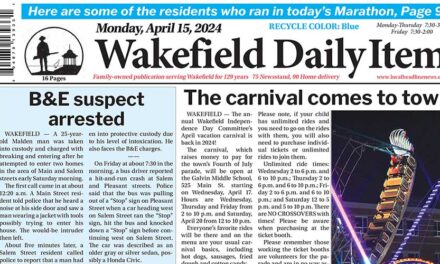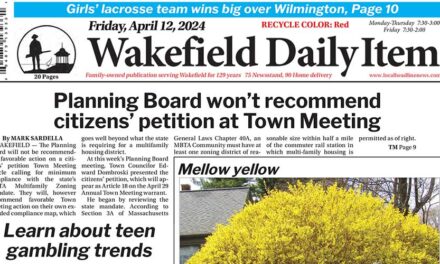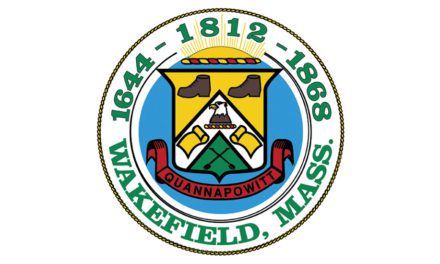Published in the August 26, 2015 edition
By MARK SARDELLA
WAKEFIELD — Wakefield will soon be establishing a “Human Rights Commission,” after the Board of Selectmen and the School Committee endorsed the idea this week.
The Selectmen heard from local resident William Chetwynd, who represented a group that advocates such a commission. Chetwynd told the selectmen on Monday that Wakefield’s diversity has increased in recent years and he maintained that the town should take the opportunity to celebrate that diversity. “We need to all work together,” Chetwynd said, “and part of that is to protect everybody’s rights.” He said that he viewed a Wakefield Human Rights Commission as “a place for people to go to begin the conversation if they have an issue.” He proposed that the commission would be composed of three individuals appointed by the Board of Selectmen, three appointed by the School Committee, a student representative from Wakefield High School, a designee from the Police Department and two ex-officio members, Town Administrator Stephen P. Maio and School Superintendent Dr. Kim Smith. Chetwynd said that ideally the commission would also include an attorney. He said that the Melrose Human Rights Commission has been working with a Wakefield group interested in establishing a commission here. He said that a Wakefield Human Rights Commission would do research on human rights commissions in other communities. A local commission would also be a member of the Massachusetts Commission Against Discrimination (MCAD), which could provide some training, Chetwynd said. Chetwynd noted that preliminary draft bylaws for a Human Rights Commission have already been drawn up. The commission would use technology to foster communication and be as open as possible, Chetwynd added, by creating a website and using social media such as Facebook. He also expected that a future Human Rights Commission would hold community awareness events. Chetwynd said that he envisioned a timetable whereby applicants for membership on the commission would be solicited in September. He anticipated appointments being made in October and initial organizational meetings taking place in November. Chetwynd thanked what he termed the “Human Rights Commission Action Team” for their efforts to promote a commission in Wakefield. In addition to Chetwynd, those individuals include Dr. Smith, Maio, School Committee member Greg Liakos, former School Superintendent Dr. Stephen Zrike, Police Chief Rick Smith and Selectman Brian Falvey. Selectman Tiziano Doto said the he supported the idea of a Wakefield Human Rights Commission but wondered what teeth it would have and exactly how it would function. Town Counsel Thomas Mullen said that he would “rather keep teeth out of it.” He noted that the MCAD has statutory powers that a local commission should not try to mimic. He said that he would not want to see a local Human Rights Commission take sides in disputes that ultimately end up before the MCAD or in Superior Court. Chetwynd said that he envisioned the commission’s role as an evolving process. Selectman Phyllis Hull expressed some skepticism. “I want to make sure we know what we’re doing before we vote on it,” she said. “Do we feel that as a community we’ve had problems with human rights?” Board of Selectman Chairman Ann Santos said that there have been issues of discrimination in Wakefield. She said that she saw a Human Rights Commission as a place for people to go who feel that they have been discriminated against on areas such as housing and employment. She said that there would also be an education element to such a commission. Other members of the board also voiced support for the formation of a Wakefield Human Rights Commission. Last night, Maio presented the idea to the School Committee. Member Thomas Markham said that he saw a local Human Rights Commission as “helpful to the community at large.” School Committee member Greg Liakos observed that the commission’s function in raising awareness “is key to why the involvement of the schools is so important.” School Superintendent Dr. Kim Smith called the idea of a local Human Rights Commission “a powerful move in terms of symbolism and activism.”




